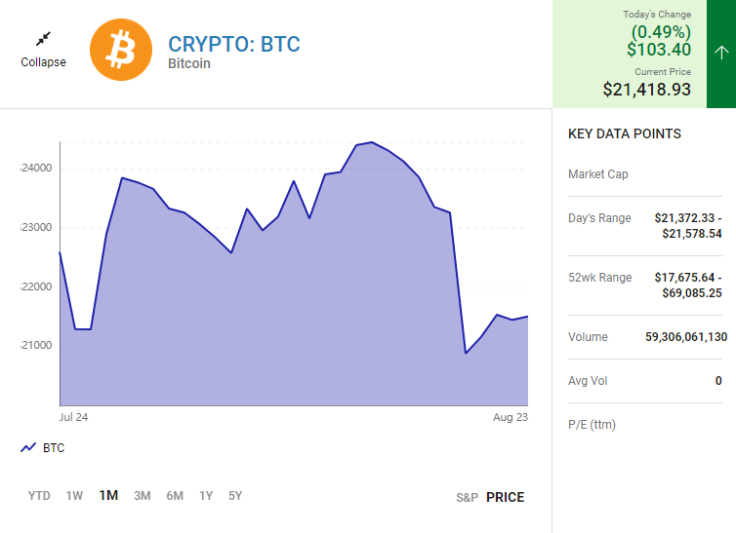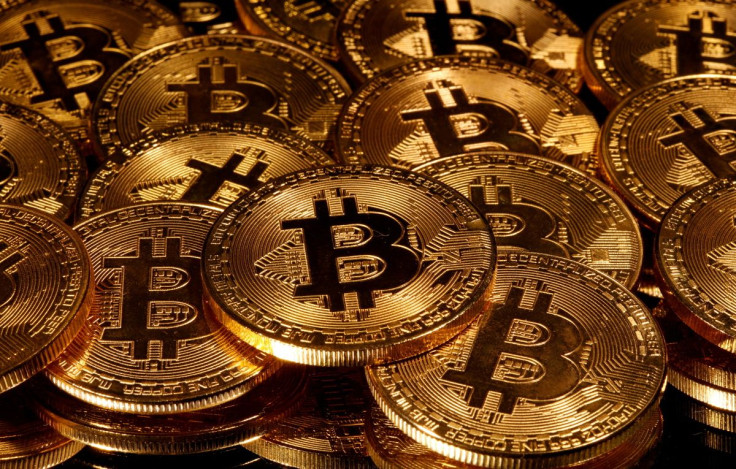Now Might Be One Of The Best Times To Buy Bitcoin
KEY POINTS
- Rising interest rates are a headwind for risky assets, like Bitcoin
- Tighter monetary policy, whose goal is to slow down soaring inflation, will pressure Bitcoin in the near term
- Due to the massive amount of debt held by governments across the world, reversing course and lowering interest rates is a likely scenario
Ever since the Great Financial Crisis in 2008 and 2009, major central banks have adopted an incredibly accommodative stance toward monetary policy in order to boost the economy, a strategy that was exacerbated by the coronavirus pandemic. While it was previously not an issue, today we are experiencing surging prices across the U.S. economy as a direct result of the money printing.
And now, to curb soaring inflation for everything from groceries and gas to rent and used cars, interest rates are ticking up. But the Federal Reserve's recent hawkish stance could flip and turn dovish in the not-too-distant future, and this would be an extremely bullish situation for one asset in particular -- Bitcoin (BTC 0.49%).

Crypto winter
To be clear, as long as the central bank continues hiking interest rates in order to slow down inflation that's at 40-year highs, I see Bitcoin remaining under pressure. This is because in this environment, investors lean toward safer assets, like Treasury bonds and even cash instead of more speculative financial instruments like growth tech stocks or cryptocurrencies. It helps explain why the Nasdaq Composite, a tech-heavy stock index, has lost 17% in 2022, about double the S&P 500's drop (as of this writing).
A prolonged period of weak crypto prices is known as a crypto winter. During this time, money usually flows out of the space as investor interest wanes. Like bubbles that burst in traditional financial markets, this is when faulty, scam-like, and unsustainable projects and companies get shaken out, and the strongest teams and enterprises will survive. In crypto specifically, developer activity should continue to remain strong regardless of what prices are doing.
Consequently, for someone who has cash sitting on the sidelines that they're ready to put to work, buying Bitcoin, which has fallen 65% from its all-time high last November and is in a major bear market, might be a sound financial decision right now. That's because not only is its long-term potential absolutely massive, but within the next 12 months or so, we could see more favorable monetary policy.
Reversing course
The Federal Reserve's intended objective is to pump the brakes on inflation without bringing the economy into a recession, with what is known as a "soft landing." But some investors don't believe that this is a realistic scenario. The U.S. economy has shrunk for two consecutive quarters, which technically means that we're already in a recession. The Biden administration, on the other hand, has come out with a statement saying how the U.S. is not in a recession, but I think this was done so the public wouldn't panic.
Central bankers point to the strong labor market and 3.5% unemployment rate, but this can be misleading. According to a survey by small-business insurance marketplace Insuranks, 44% of Americans have taken on side hustles to earn extra money. And there are more Americans today who have two full-time jobs than in February 2020, before the pandemic struck down the economy. What's more, consumer confidence is at a record low.
What this means is that as the Federal Reserve keeps setting higher interest rates to stop inflation, it will inevitably lead to a full-blown recession that wouldn't be debated. And at this point, the central bank will probably have to change course and begin cutting interest rates again because they would need to stimulate economic growth. As a result, liquidity will once again be pumped into the financial system to encourage lending by banks and borrowing and spending by consumers.
And when this happens, the investment case for owning Bitcoin will become strikingly clear. Governments around the world need to keep the money printer going, and keep interest rates low, in order to support their colossal debt burdens, again creating an environment for elevated inflation to come back. If only there was a scarce digital store of value that was absolutely finite with no central bank controlling it. Luckily, there is. It's called Bitcoin.
This article originally appeared in The Motley Fool.
Neil Patel has positions in Bitcoin. The Motley Fool has positions in and recommends Bitcoin. The Motley Fool has a disclosure policy.





















